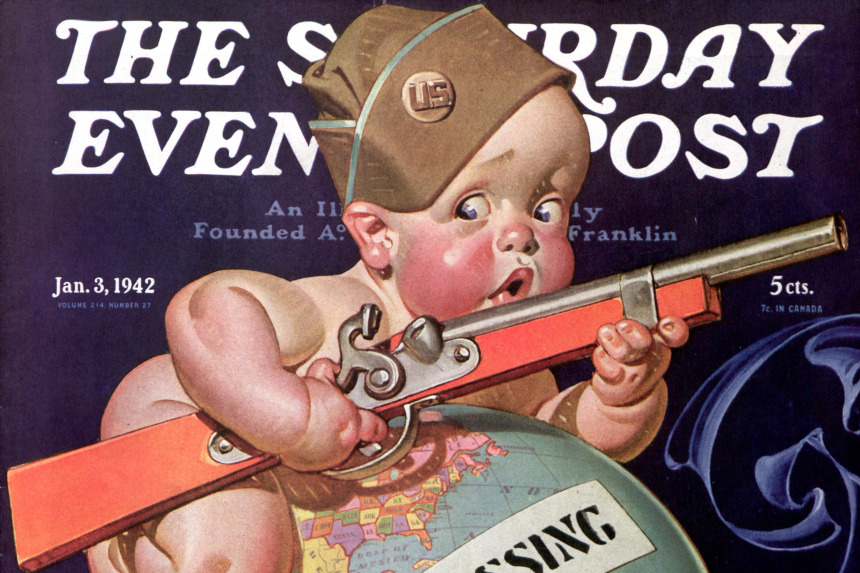Managing editor and logophile Andy Hollandbeck reveals the sometimes surprising roots of common English words and phrases. Remember: Etymology tells us where a word comes from, but not what it means today.
If dentistry is the purview of dentists, poetry of poets, and ministry of ministers, who, then, should we find in the infantry? Infants?
Actually, yes. In a manner of speaking.
Both infant and infantry trace back to the Latin word for a baby or young child, infans, which literally translates as “not able to speak.” The Romans extended the sense of the word into later childhood, long after the age when we sometimes wish today’s children would stop speaking so much. That extension is embedded in some of the Romance languages; in Modern French, for example, the word for child is enfant.
We see the same extension in English, too. Adults are often enough called lad, lass, baby, child, kid, girl, or boy by older folks, sometimes in a demeaning way, but more often in a familial or intimate way.
In Renaissance Italy, the Italian word infante, indicating “young person,” made the jump into military terminology as infanteria, meaning “foot soldiers” — those young men who hadn’t yet had enough experience to serve in the cavalry. This came through French to English, probably in the 14th century, as infantry, the men on the ground who were the youngest and least experienced, and whose opinions on the course of a battle were probably considered about as important as an infant’s.
Of course, today’s infantry units aren’t the dumping ground for the young and inexperienced that they once were. For many, an infantry regiment isn’t a stepping stone but a destination in the Armed Forces, and they proudly display their regiment insignia — certainly on their uniforms, but also on hats, shirts, and tattoos — for the rest of their lives.
Featured image: January 3, 1942 The Saturday Evening Post cover by J.C. Leyendecker; © SEPS.
Become a Saturday Evening Post member and enjoy unlimited access. Subscribe now




Comments
This word, infantry, I never really paid any attention to until now, and never associated it with infant before. They just had nothing in common; or at least I didn’t think so until now.
There’s more than one baby (and occasionally their parents) I would’ve happily sent into the infantry when I had a part-time job as a baby photographer at a department store once upon a time! Most of the time, thank God, I got the happy expression everyone wanted by making goofy faces, sounds and the props. Even the ‘terrible two’s’ weren’t that bad. Proud to say I never made a child cry, but got quite a few to stop that were at first.
Don’t laugh now, it wasn’t that easy! I can only imagine an episode of ‘I Love Lucy’ or ‘The Lucy Show’ where Mrs. Ricardo (or Carmichael) gets a job as a baby photographer and is fired for making the kids cry, upsetting EVERYONE, but mostly herself!